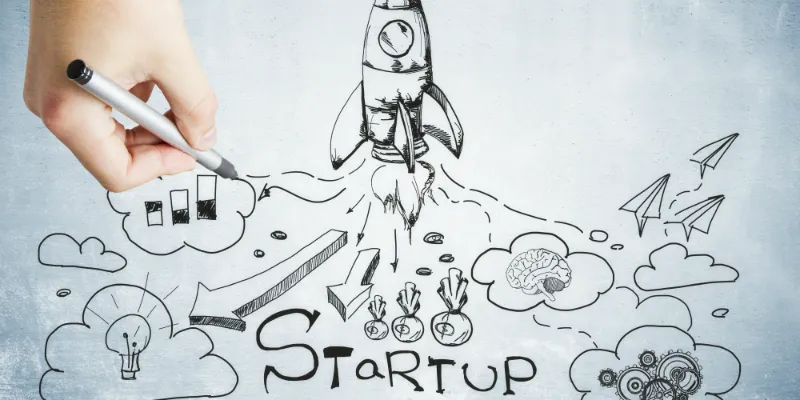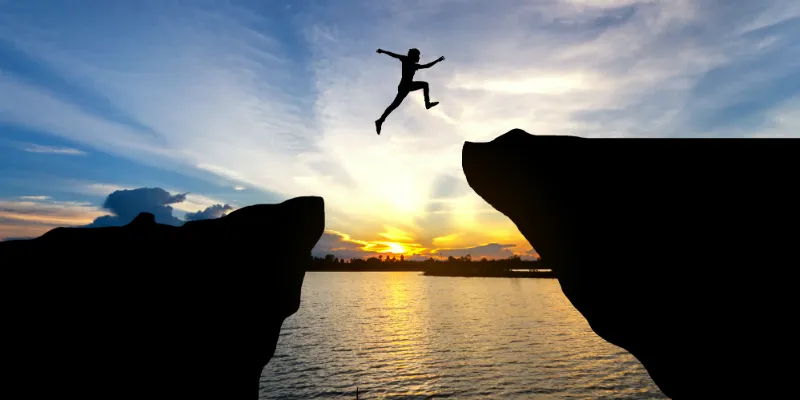Brave encounters: Courage is the key to success in the business world
Courage has long been acknowledged as a vital ingredient, common to most inspiring human journeys. But it is absolutely crucial when it comes to being creative or embarking on innovation
While many terms make it to the boardroom discussion table when it comes to business-thinkvision, competitive advantage, revenue streams, strategy and so on, one which never quite gets featured enough is courage.
And yet to do business is itself an act of courage, as people behind any startup will readily concur. Embarking on the entrepreneurial course is to navigate the stormy seas of uncertainty. It is to leave behind the shores of safety and voyage towards promising, though dangerously elusive destinations.
In many ways high-level sport regularly showcases courage. Here, the athlete puts body, spirit, and soul on the line at moments when all seems lost. Decisions need to be made instantly, which might have immediate cataclysmic effects. Hence, importing inspiration from sporting tales could fuel the internal fire at the office, especially when the asking rate appears a touch too steep.
One brave moment that changed Indian cricket forever
Indian cricket perhaps turned on one moment of courage.
It was the 1983 World Cup final. India, defending a paltry 183 was being played out of the game by the formidable Vivian Richards. At that point, Madan Lal, the Indian seamer who had just been belted for three fours the previous over, refused to bow down.
He went up to his skipper Kapil Dev and asked for one more over. Given the stick he had just received, it was a very courageous thing to do. It was also brave of Kapil Dev to go with his bowler’s hunch. The next over could easily have yielded many more boundaries, and West Indies could have been out of sight.

Courage is important even in a sport like cricket
It turned out to be a counter intuitively creative decision.
In the next over, Richards, perhaps trying even harder to dismiss Madan Lal from his presence, top edged a hook. Kapil Dev turned around and ran like his life depended on it, pouching a magnificent catch. It completely changed the game.
India emerged World Champions!
Perhaps it was all down to one shining moment of unflinching character.
Courage plays out on the pitches of innovation too
Courage has long been acknowledged as a vital ingredient, common to most inspiring human journeys. But it is absolutely crucial when it comes to being creative or embarking on innovation.
By definition, doing something creative means going against the norm, disrupting standard practice, embarking on something, which does not have any precedent. It means exposing oneself to the ridicule and criticism of others, especially those who make up the ‘establishment’.

Creativity means going against the norm
It also entails sticking a bit more with your idea, even when the future seems uncertain, despite one being overwhelmed by the naysayers.
Creativity and innovation require that one is prepared to fail, and fail often at that.
Given that most grow up in an academic culture, where failure is like slipping into a black hole, this rarely comes easily to people. This is why the stories of great creative ideas are always tales, which exhibit courage in great abundance.
Creativity is usually considered, as an outcome of the processes of the mind. But anatomically speaking, there is another organ, which plays as critical a role - the human heart.
Because if that cardiovascular entity shows no spine, very little is actually possible. It acts as the driving force, which powers the creative journey ahead.
How the Beetle stung really hard
Speaking of driving, let us reverse back to the story of the Volkswagen Beetle…
Here was a German car trying to enter the US market in the years post the Second World War, a bold step in itself. American feelings for anything emerging from Germany at the time were about as pleasant as Cristiano Ronaldo’s for the referee when he rules a brilliant goal offside.

Beetle's launch advertisement said ‘Think Small'
The Beetle was small and rather oddly shaped - much like the insect itself, as opposed to the large, stylish cars that were dominant in America. It was economical when it came to fuel consumption at a time when such a concept was not even on American windscreens.
Its launch advertisement even dared to say, ‘Think Small’ - an emotion exactly opposite to the American zeitgeist at that time. The US was all about making everything ‘bigger and better’. In a sense, the Beetle represented a ‘conceptual diet’ at a time when Americans truly were looking to unabashedly binge.
And yet the Beetle’s slightly cocky attitude - of standing apart so confidently from the rest of the crowd - endeared itself to the American public in a manner few foreign cars had ever done before, or since.
The bold new Indian revolution
Courage has also been at the fore of the Indian startup revolution, which has really taken off in recent years. This has spawned several innovative organisations.
Scores of young minds have moved away from the stability of high paying jobs and plunged into pursuits of pure passion; sometimes despite there being no real clarity about how things might end up.
This urge to forge their own journeys, make a difference in the world, and really pursue an idea they fervently believe in, is indeed laudable.

If you want to start something anyway, there’s no better time than now
There used to be a time when the dominant thinking was to garner experience and financial stability by working for a long time in the corporate world, and only then embark on something of your own.
This entrepreneurial generation has turned that paradigm on its head.
Their motto seems to be, ‘If you want to start something anyway, there’s no better time than now’. They are willing to take the hard knocks, bootstrap for a while, change plans ever so often, start afresh all over again, thrive on the inherent chaos, and ceaselessly learn every step of the way.
Many realise they might fail. But that hasn’t stopped them.
This blowing gale of entrepreneurial energy is likely to not just have business and economic consequences for the nation, but also blow some much-needed fresh air over staunchly held cultural and societal thinking and conventions.
These young entrepreneurs are like the intrepid explorers of the modern era in India. To paraphrase an iconic line from Star Trek, ‘they are likely to boldly go, where their parents never went before.’
For in the end, the hero takes it all
To conclude, courage is a virtue, which trumps many others in the human adventure. Quite unsurprisingly, it has a key role to play in creativity and innovation.
For being creative is firstly an act of courage. Embarking upon an innovation is taking a step into the dark, unforgiving world of uncertainty, doubt, and failure.

Creativity is an act of courage
Many days, there will be nothing in sight, only despair.
For long, there might be no light at the end of the tunnel. People will often frequently question themselves, and confidence might take a battering. Shoulders and spirits might drop, resolve might ache.
Surely this is path only for heroes!
Extracted from Vinay Kanchan’s new book ‘Sportivity’.










